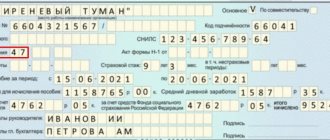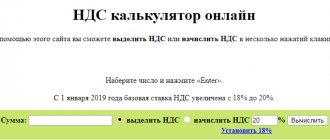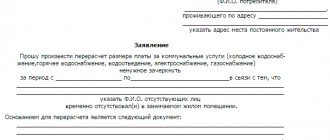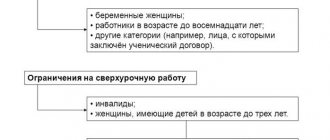DIRECTLY BETTER?
Apartment owners are not always satisfied with the role of management companies (MCs), homeowners' or real estate associations (HOA or TSN) as intermediaries between residents and resource supply organizations (RSO). Changes to the Housing Code of the Russian Federation (Law No. 59-FZ of April 3, 2021) regulated the possibility of concluding contracts directly with resource supply organizations, bypassing the management company, for the supply of heat and water, sewerage, electricity and gas supply, heating, as well as for export garbage with regional operators.
– Our HOA was closed with bankruptcy of 5 million rubles. with a heating debt,” recalls Odintsovo resident Olga Dyachenko. – The HOA claimed that the tenants did not pay. And we paid. So personally, I will happily pay directly and sleep peacefully.
Earlier, Podmoskovye Segodnya wrote about the situation in the Edelweiss-Comfort residential complex in Balashikha, where residents were forced to cook food over a fire because the chairman of TSN opened a crypto farm in the parking lot. All the residents' money went to pay for the energy consumption of powerful computers. Due to the huge debt, Mosenergosbyt JSC limited power supply for four hours three times a week.
Explanation of the procedure for accrual and payment for the “MSW Management” service for residents of the private sector of the Moscow Region
28.02.2019
In connection with numerous requests from residents of the Moscow region, Mosenergosbyt JSC explains the procedure for accrual and payment for owners of individual housing construction projects.
Why receipts from Mosenergosbyt?
Between Mosenergosbyt JSC and Regional operators that provide services for the management of solid municipal waste in the Moscow region, agreements have been concluded for the organization of monthly utility bills and their inclusion in a single payment document, as well as the delivery of receipts to owners of individual residential buildings located in territory of the Moscow region, and organization of payment acceptance.
As part of this work, Mosenergosbyt JSC carries out exclusively the monthly formation of a single payment document containing charges for and “Management of solid waste”, based on address lists of individual residential buildings in the territory of municipalities of the Moscow region, provided by Regional operators.
All other issues, including those related to the correctness of information about the characteristics of households and the quality of services provided, are solely within the competence of Regional Operators.
How are accruals made?
The amount of the fee depends, first of all, on the area of the residential building located on the site. In accordance with the methodology developed by the Ministry of Housing and Communal Services of the Moscow Region, the calculation is carried out according to the formula:
Tariff x House area x 0.7 (discount).
For individual households located within a radius of 2 km from the location of existing landfills and waste treatment complexes, an additional discount of 70% is applied.
At the same time, a maximum payment amount has been established for houses with different areas, above which the amount of charges cannot be exceeded.
You can calculate the amount to be paid yourself, as well as check the correctness of the calculations in the receipt, using an online calculator posted on the website of the Committee on Prices and Tariffs of the Moscow Region.
Where did 200 meters come from?
In some cases - when the Regional Operator does not have information about the area of a residential building - in accordance with the recommendations of the Ministry of Housing and Communal Services of the Moscow Region, when calculating charges, the average standard indicator of the area of the house is 200.00 m2 and the corresponding maximum payment for the amount of 450.00 rubles .
If the applied standard does not correspond to the actual area of the house, in order to ensure further correct calculations for residents, it is necessary to send documents confirming the area of the residential building to the Regional Operator (in any other convenient way) or by e-mail. After providing the supporting documents, the Regional Operator will The cost was recalculated in accordance with the exact size of the house area.
Where and how to pay?
You can pay for a single payment document in two ways: a single payment for both services or separately to each service provider.
When paying in a single payment, you must use the details indicated at the top of the EPD and a single personal account number. In this case, the operator of the Mosenergosbyt project will independently transfer the required amount to the regional operator.
For separate payment directly to service providers, you must indicate the personal account number of a specific supplier and use their details indicated at the bottom of the EPD.
IMPORTANT! If payment for a particular service is made using the details specified for making a single payment, the amount will be distributed between both service providers in proportion to the accruals made.
You can pay for the EPD at any credit institution (bank) using the details specified therein, as well as at payment terminals installed in the client offices of MosObleIRTs LLC (cash only).
Also, for the convenience of residents, a Unified Personal Client Account (my.mosenergosbyt.ru) has been launched, in which you can not only make EPD payments without commission, but also view all the information on charges, tariffs, etc. If the client already has a Mosenergosbyt personal account, then it is enough to log in to a single LKK using the existing login and password. New users need to go through a simple registration procedure (detailed video instructions are posted on the main page). After registration (authorization) you must add a personal account with the Regional Operator for the Management of MSW (specified in the EPD).
Will the power be turned off if you don’t pay for “MSW Management”?
In accordance with current legislation, the introduction of restrictions on energy supply is possible only in the event of arrears for consumed electricity.
If the site is empty
If the land plot contains only outbuildings (for example, garages, sheds, etc.) and there are no residential buildings, it is necessary to provide supporting documents to the Regional Operator (for example, a certificate of ownership, an extract from the Unified State Register, etc.). d.), which indicate that these buildings are not residential. Photos of the site and the objects located on it must also be attached to the documents. Documents can also be sent with a covering letter by email.
* * *
If there are no buildings on the land plot at all, it is necessary to provide the regional operator with photographs of the plot confirming this. You can also send photos with a cover letter to the following email: [email protected]
Based on the materials provided, the regional operator will consider the issue of recalculation.
Who do summer residents pay?
If private households are part of SNT, DNT, DNP, cottage villages, which are served by a management organization, then, in accordance with current legislation, the collection and transfer of accumulated waste to the Regional Operator is carried out directly by the management bodies of such organizations, which, as legal entities, independently enter into relevant agreements with Regional operators. Accordingly, payments to the Regional Operator directly by residents are not provided.
However, as follows from customer requests, some owners of land plots from the above category still erroneously received an EPD with .
In order to correct this error, local government bodies, together with Regional operators, on behalf of the Ministry of Housing and Communal Services of the Moscow Region, are currently re-verifying address lists to exclude summer residents from them. However, this process may take some time.
To more quickly resolve this issue, the chairmen of the SNT (DTN, DNP, heads of management organizations) can send in any convenient way to the Regional Operator an appeal indicating the personal account numbers for the ENP of each resident and attaching copies of documents confirming the presence of an appropriate management method in a specific territory. After submitting the documents, the Regional Operator will exclude all listed addresses from the address list.
Residents can also contact Regional operators using a similar scheme on their own.
Where can I complain if the garbage is not taken out?
If residents identify facts of untimely removal of solid municipal waste or if there are other complaints about the work of the Regional Operator, residents are advised to contact the hotlines of Regional Operators to promptly resolve issues regarding the removal of solid municipal waste.
In addition, if any questions arise, residents of the Moscow region can contact the hotline for MSW management in the Moscow region: +7 (495) 123-36-46, by email or through the feedback form in the client’s personal account .
The quality and organization of work provided by Regional operators are beyond the competence of Mosenergosbyt JSC.
List of regional operators in the Moscow region.
More information on the website of the Ministry of Housing and Communal Services of the Moscow Region.
Return to news list
WHAT ARE WE AFRAID OF?
However, many homeowners are afraid to take advantage of the opportunity that has opened up to them, which they share on social networks. Some are afraid that they will get confused in payment bills, which will become several instead of one if they conclude separate agreements with each RSO.
Some people do not trust the payment agent MosObleIRTs in the payment system, when the management company issues payments to homeowners only for the maintenance of the housing stock, and direct bills for electricity, water supply, sewerage, heat, major repairs and garbage removal are included in the receipts of the information and settlement center MosOblEIRTS.
“Money received from payers is not accumulated in the accounts of MosOblEIRTS LLC, but is immediately “split” among utility providers, bypassing the accounts of the management company, which eliminates misuse,” explains MosOblEIRTS representative Olga Razumovskaya.
According to resident Andrei Yangabyshev, direct payments have other pitfalls. If, for example, it is cold in the apartment, you will have to run around to find out who is to blame. However, as our correspondent was confirmed by the regional Ministry of Housing and Public Utilities, organizations supplying utility resources are responsible for supplying resources of appropriate quality to the boundaries of the common property in the apartment building and the boundaries of the external networks of engineering and technical support for a given house. Everything that starts from the basement of the house is on the conscience of the management company or the HOA.
The essence of the law on MSW
To combat landfills and improve the environment, all categories of citizens (except for WWII veterans) will pay for garbage removal and disposal, depending on the number of living (registered) citizens in the apartment (private house). Waste sorting is being introduced officially; waste collection sites must be provided by municipalities of cities and regions. Transportation of waste is carried out by special operators. Land owners are required to eliminate spontaneous landfills.
List of waste related to MSW with codes
To guarantee environmental safety, it is necessary to keep records of MSW. For this purpose, a classifier (FKKO) was created; it reflects the origin of waste (5 types), physical form, chemical composition, and environmental hazard. Here's an example:
Code Name of waste type Hazard class
1 00 000 00 00 0 WASTE OF AGRICULTURE, FORESTRY, FISH CULTURE AND FISHING
Bulk waste (LW) is also included in the list of “municipal waste”.
There was solid waste in the receipt, it became solid waste - what's the difference?
Indeed, previously the garbage that is generated as a result of the activities of residents and industrial enterprises of Russian cities was called the term “MSW” and stood for municipal solid waste. Solid waste was understood as any waste, both domestic and industrial. Solid waste was collected until 2021 by management companies and organizations working in the field of waste removal.
In 2021, many citizens, seeing a new payment item on the receipt, did not immediately understand what it was - MSW. Since this year, as part of the garbage reform, significant changes have occurred. Garbage is now called MSW, that is, municipal solid waste, and the organization of its removal from residential buildings and commercial enterprises is now handled by local operators - local waste removal and recycling enterprises.
In each region there may be several operators involved in the removal of MSW. At the local level, the operating procedures of such operators are determined, and tariffs are established for the population and enterprises for paying for such utilities. Let's take a closer look at the tariffs for handling MSW. This innovation affected everyone, and few people liked the increase in fees for waste removal services.
Disposal
After filling the waste containers, the regional operator takes them to places where direct disposal of MSW takes place. Recycling should be understood as the process of reducing the harmful effects of waste on the environment. There are 3 most popular methods:
- Burial;
- Burning;
- Composting.
Let us now examine the pros and cons of each method in more detail.
Burial
It is the storage of MSW in specially designated areas. Garbage dumps, which are located outside the boundaries of almost every city, are a clear example of this. During burial, a hole is dug, the depth of which depends on the volume of MSW supplied. The garbage is stored directly in it and then buried with a layer of earth.
Among the main advantages of this method is its low cost. It is this factor that attracts regional representatives to increasingly turn to this method of disposal. But there are also disadvantages. And they are significant.
Landfills cause significant harm to the environment of the surrounding area. The soil is poisoned by harmful substances released by MSW, so that subsequently it is incapable of developing any kind of vegetation. As garbage decomposes, it forms toxic gases that can spread tens of kilometers from the site where MSW is stored. For this reason, trash cans should not be located near water bodies, medical institutions or places of residence.
Burning
Such disposal is a more advanced disposal method compared to landfill. MSW here, when burned, turns into ash, which in its volume is significantly inferior to the original size of the garbage. All this will reduce the waste storage area by several times. In addition, the heat generated as a result of combustion can be used for industrial needs or as heating for residential buildings and premises.
The disadvantage of burning MSW is increased toxicity. The gases released as a result of burning plastic are deadly to both humans and nature. To reduce their negative effect, it is necessary to use afterburning furnaces with modern cleaning systems. This makes this method less attractive from a financial point of view for entrepreneurs and companies involved in the disposal of municipal solid waste.
Composting
This recycling of MSW occurs due to the impact of living microorganisms on it. The peculiarity of this method is that only organic waste can be subjected to it. Moreover, certain types of bacteria are suitable for different types of household waste. For this reason, waste sent for composting must first be separated into categories.
The advantages of this method are simplicity, efficiency and, most importantly, low financial costs for its implementation. In addition, the resulting compost from garbage can be recycled. They are high-quality fertilizers and are widely in demand in agriculture.
Among the disadvantages of composting, we note the unpleasant smell of rotting, which can subsequently attract various kinds of parasites.
Municipal solid waste management
The procedure for handling, accumulation and removal is determined by Federal Law No. 89 “On Municipal Solid Waste”.
Rules of circulation
The work performed to collect, transport, store, destroy and process waste is called handling. The regional operator is responsible for waste management. The owner of MSW complies with collection standards and signs an agreement with the operator regarding transportation.
Hazard Class
Depending on the harm caused to nature and humans, all garbage is divided into 5 groups:
- the most dangerous class 1 – the impact on nature is fatal. The ecosystem is not functioning;
- Class 2 – nature will begin to recover in about 30 years;
- 3rd grade – within 10 years nature will be reborn;
- 4th grade – in 3 years nature will be restored;
- Class 5 - the impact does not cause any harm to the ecosystem.
The hazard class of waste (MSW) is determined in each specific case, but for the most part waste related to the term MSW is included in hazard classes 4 and 5 (recognized as non-hazardous and considered suitable for recycling).
MSW accumulation standards
The average volume of MSW consumption per year is calculated per citizen. This figure is called the MSW accumulation rate, which takes into account all types of waste. When determining the norm, they take into account the city (geographical region), the approximate number of cafes and restaurants per person, the time of year, and how developed the infrastructure of the locality is. Approximately this figure for the Moscow region is 2.3 cubic meters per year per person.
Density
To determine the volume needed for MSW disposal, density is calculated. The determination process occurs in three stages:
- measure waste with a ruler;
- weigh, determine mass;
- calculate the average annual and daily average density of waste.







